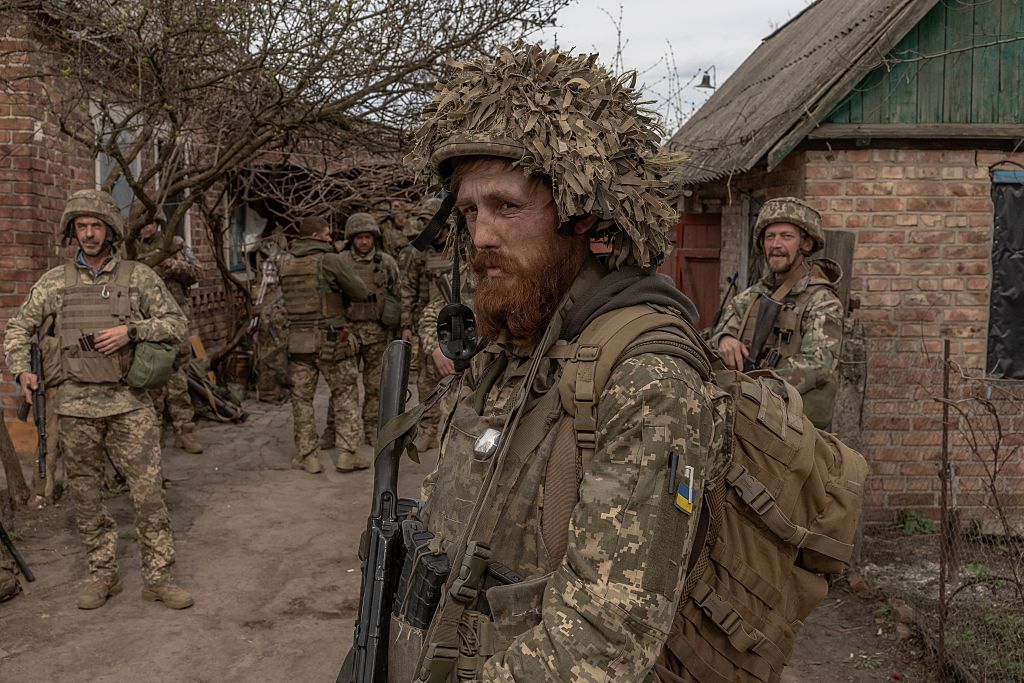Transcript: Scott Gottlieb on "Face the Nation," June 13, 2021
The following is a transcript of an interview with former FDA Commissioner Dr. Scott Gottlieb that aired Sunday, June 13, 2021, on "Face the Nation."
JOHN DICKERSON: And we turn to former FDA commissioner Dr. Scott Gottlieb. He's also on the board of Pfizer and has a new book coming out called Uncontrolled Spread: Why COVID-19 Crushed US and How We Can Defeat the Next Pandemic. He joins us from Westport, Connecticut. Good morning, Dr. Gottlieb.
DOCTOR SCOTT GOTTLIEB: Good morning.
JOHN DICKERSON: Let's start with the Delta variant. As Elizabeth Palmer mentioned in her report, it's causing a lot of problems in the United Kingdom. The government is considering delaying the reopening for a month. The variant started in India, but now it's spreading across the world. What should we think about that in- in the United States?
DR. GOTTLIEB: Look, and it's going to continue to spread. It's concerning. It appears to be more transmissible. There was data out from Neil Ferguson this week showing it's about 60% more transmissible than 1.1.7, which was that old U.K. variant that they're now calling the Alpha variant. So this is more contagious. It appears that people who get this virus have higher viral loads and they have those viral loads for longer periods of time. So they shed more virus. Right now in the United States, it's about 10% of infections. It's doubling every two weeks. So it's probably going to become the dominant strain here in the United States. That doesn't mean that we're going to see a sharp uptick in infections, but it does mean that this is going to take over. And I think the risk is really to the fall that this could spike a new epidemic heading into the fall. The vaccines seem to be effective. The mRNA vaccine seems- seems to be highly effective, two doses of that vaccine against this variant. The viral vector vaccines from J&J and AstraZeneca also appear to be effective, about 60% effective. The mRNA vaccines are about 88% effective. So we have the tools to control this and defeat it. We just need to use those tools. I think in parts of the country where you have less vaccination, particularly in parts of the south, where you have some cities where vaccination rates are low, there's a risk that you could see outbreaks with this new variant. The outbreaks that are happening in the UK are happening around schools where you have a lot of unvaccinated children.
JOHN DICKERSON: And as the CDC director last week urged parents to vaccinate their teens, citing a rise in hospitalization among 20- 12 to 17 year olds, is this variant causing that or--?
DR. GOTTLIEB: Probably not yet. I mean, I don't think that there's enough of this variant. We certainly haven't seen outbreaks with this variant in school-like settings here in the United States yet. Probably what's driving some of the increased infection among kids is 1.1.7. It's- it's also a more contagious variant. So it's getting into settings and infecting people who might not have been as vulnerable to the old wild-type variant that came out of Wuhan. So you're seeing a higher rate of infection among kids. And- and hopefully we're going to get more kids vaccinated. The vaccines are available right now for kids 12 and above. Hopefully, there's going to be a vaccine available for kids who are younger heading into the fall. Pfizer recently started a clinical trial with a vaccine for younger age population. Moderna is developing a vaccine for that age cohort as well.
JOHN DICKERSON: We've talked about the Alpha variant, the Delta variant. The world is still struggling with COVID. Should we expect over the next- next several months to talk about more variants based on the pattern we've seen so far?
DR. GOTTLIEB: Yeah, it's really unclear. There's a lot of people who think that this virus has mutated rapidly over a short period of time and reached what we would call new-fitness level. But it's not going to continue to mutate at this rate. It's mutating about at the rate of influenza B right now. So it's mutating as quickly as influenza B. Remember, this virus has to thread a very careful needle. It's trying to change the spike protein, which is a protein on its surface that we develop our antibodies against in a way that our antibodies no longer recognize that protein. But that spike protein is also what the virus uses to attach to the lining of our respiratory tract. So it can't change it too much or else it no longer can latch onto our cells- cells. So it's trying to thread a very careful needle. It may be that the rate of mutation of this virus starts to slow down. The good news is that so far, none of these variants that we've seen defeat the vaccine. Some of them- for some of them, the vaccines are a little less effective. But the vaccines have maintained their effectiveness against all of these variants, including .617. So I don't think we're going to see a situation where we're going to wake up one day like we sometimes see with influenza where all of a sudden our vaccine doesn't work, at least not in the foreseeable future.
JOHN DICKERSON: Let me ask you about the CDC is looking into cases of pericarditis, I think it's called. Is that something that people should be nervous about?
DR. GOTTLIEB: I think it's something that the CDC and the FDA should be looking carefully at. I don't think people should be nervous about it right now. I don't think it changes the risk-benefit balance for this vaccine. Right now, these cases are clustered in people 18 to 24, men more than women, about 80% of the cases that we've seen in men. There's been about 12 million people vaccinated between the age of 18 and 24. We've found 275 cases. It's not clear that there's a causal relationship between the vaccine and these cases. If there is, it's probably an inflammatory response from the vaccine. We know the vaccine creates an inflammatory response. A lot of these cases have happened immediately after vaccination. The vast majority have been self-limiting. They've been treated with steroids or NSAIDs. In certain cases, patients haven't gotten really sick. And we also have to keep in mind that people, especially young people, are going out more and we're seeing more outbreaks of ordinary viruses. There's actually been a spike in respiratory syncytial virus, enterovirus, echoviruses, coxsackieviruses. So it could be the case that as young people get vaccinated, they're going out more. They're exchanging other viruses. We're seeing outbreaks of those viruses and we know those viruses also cause pericarditis. So it's not clear that it's the vaccine or perhaps a change in behavior, but it's certainly something we should be looking closely at because we have to properly inform patients if, in fact, this is a risk.
JOHN DICKERSON: So with 30 seconds left, if somebody is worried about their newly vaccinated younger person, what symptoms should they look out for if- if they're concerned about pericarditis?
DR GOTTLIEB: So most of the cases where we've seen pericarditis and we believe it could be in association with the vaccine have happened immediately after vaccination within probably the first two or three days, mostly after the second dose. The signs and symptoms of pericarditis typically are a stabbing or a sharp chest pain that's persistent. It's positional. So it hurts more when you lay back.
JOHN DICKERSON: Right. Doctor, --
DR. GOTTLIEB: Sometimes it hurts when you take a deep breath because the pericardium, the lining of the heart, rubs against the chest wall and it might be associated with a fever.
JOHN DICKERSON: Ok, Dr. Gottlieb, thank you. We're out of time. We appreciate it. We'll be back in a moment.



